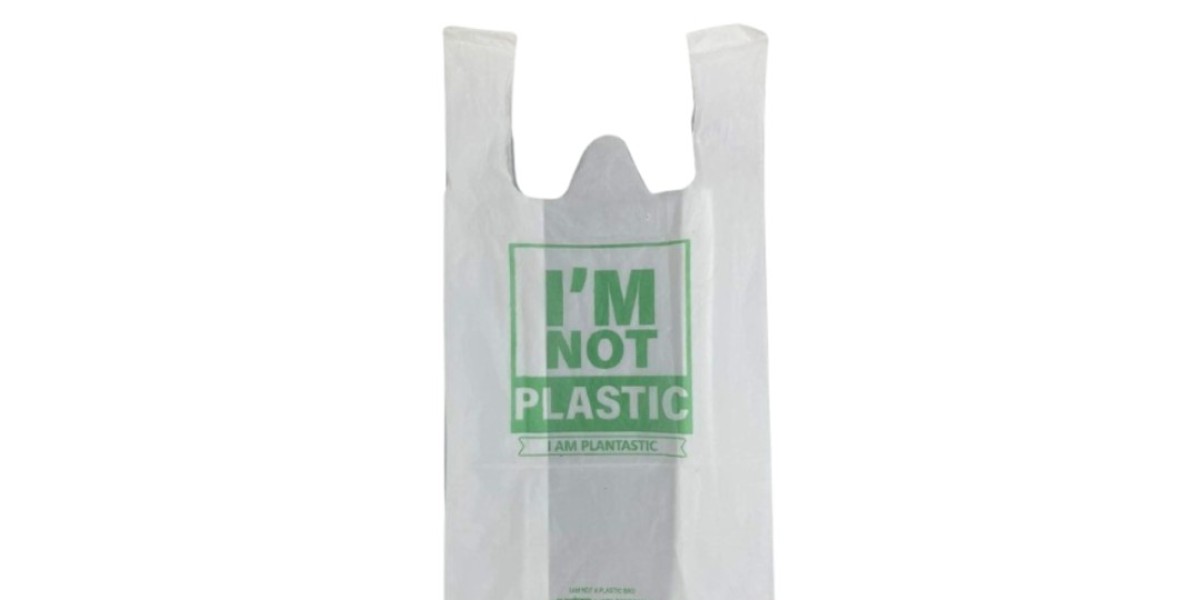These synthetic polymers, designed for durability, have become an enduring blight, persisting for centuries in landfills and oceans, leaching harmful chemicals and disrupting delicate ecosystems. In this context, the emergence of biodegradable plastic bags represents not merely a trend, but a paradigm shift, a necessary evolution towards a more sustainable future. This shift necessitates a robust infrastructure of production and distribution, one that fosters both environmental responsibility and economic viability. For instance, the role of a reliable Biodegradable Plastic Bags Manufacturer In India becomes pivotal, ensuring a steady supply of these eco-friendly alternatives to meet the escalating demand. The transition, however, is not without its challenges, demanding a cohesive approach from manufacturers, suppliers, and consumers alike.
The Science of Sustainability: Transforming Waste into Resource
At the heart of biodegradable plastic bags lies a profound understanding of natural decomposition. Unlike their traditional counterparts, these bags are engineered to break down into harmless components through the action of microorganisms. This process, facilitated by materials like polylactic acid (PLA) derived from corn starch or other renewable resources, mirrors the natural cycle of decay, returning organic matter to the soil. The implications of this are far-reaching, mitigating the accumulation of plastic waste and reducing the reliance on fossil fuels. Furthermore, the advancements in material science have led to the development of bags that not only decompose but also enrich the soil, acting as a natural fertilizer. This transformation of waste into a resource exemplifies the potential of sustainable innovation to address environmental challenges. For instance, a Degradable Plastic Bags Supplier In Ahmedabad plays a crucial role in ensuring that these technologically advanced materials are readily available to diverse industries, facilitating their widespread adoption. The integration of such technologies into mainstream supply chains is a critical step towards realizing a circular economy.
Economic Viability: Bridging the Gap Between Ecology and Commerce
The transition to biodegradable plastics is not merely an environmental imperative; it also presents a significant economic opportunity. As consumer awareness grows and regulatory frameworks become more stringent, the demand for sustainable packaging solutions is poised to surge. This creates a fertile ground for innovation and investment, fostering the development of new technologies and business models. Manufacturers who embrace this shift stand to gain a competitive edge, tapping into a burgeoning market segment. The economic viability of biodegradable plastic bags is further enhanced by their potential to reduce waste management costs. By diverting plastic waste from landfills, municipalities can save on disposal expenses and invest in more sustainable infrastructure. Moreover, the creation of a robust supply chain, facilitated by entities like a Biodegradable Polybag Exporter In Ahmedabad, ensures that these products can reach global markets, driving economic growth while promoting environmental stewardship. This symbiosis between ecology and commerce is essential for creating a sustainable future.
Regulatory Frameworks: Catalyzing Change Through Policy
The role of regulatory frameworks in accelerating the adoption of biodegradable plastics cannot be overstated. Governments worldwide are increasingly enacting policies to curb plastic pollution, including bans on single-use plastics and incentives for the production and use of biodegradable alternatives. These regulations not only create a level playing field for manufacturers but also send a strong signal to consumers, encouraging them to make more sustainable choices. The implementation of extended producer responsibility (EPR) schemes, which hold manufacturers accountable for the entire lifecycle of their products, further incentivizes the development of eco-friendly packaging solutions. Effective regulatory frameworks also necessitate robust monitoring and enforcement mechanisms to ensure compliance and prevent greenwashing. This comprehensive approach, combining policy incentives with stringent enforcement, is crucial for driving systemic change and fostering a culture of environmental responsibility.
Consumer Awareness and Education: Empowering Informed Choices
The success of biodegradable plastic bags hinges on widespread consumer awareness and education. Informed consumers are more likely to make conscious choices, opting for sustainable alternatives and demanding eco-friendly products from businesses. Educational campaigns, highlighting the environmental impacts of traditional plastics and the benefits of biodegradable options, play a pivotal role in shaping consumer behavior. Furthermore, transparent labeling and certification schemes can help consumers identify genuinely biodegradable products, preventing them from being misled by false claims. Businesses also have a responsibility to educate their customers about the sustainability of their packaging choices, fostering a culture of environmental consciousness. The role of organizations that source materials, like a Degradable Plastic Bags Supplier In Ahmedabad, also becomes important in educating their client base about the environmental benefits of the materials they distribute.
Technological Innovations: Shaping the Future of Sustainable Packaging
The field of biodegradable plastics is constantly evolving, driven by relentless innovation and research. Scientists and engineers are exploring new materials, refining production processes, and developing advanced recycling technologies. For instance, the use of bio-based polymers derived from agricultural waste and algae holds immense promise for creating sustainable packaging solutions. Additionally, advancements in composting technologies are enabling the efficient breakdown of biodegradable plastics, reducing the need for industrial composting facilities. The integration of artificial intelligence and machine learning can further optimize production processes, reducing waste and enhancing efficiency. These technological innovations are not only enhancing the performance and sustainability of biodegradable plastic bags but also paving the way for a more circular economy.
Community Engagement: Fostering Collective Responsibility
The transition to biodegradable plastics requires a collective effort, involving governments, businesses, and communities. Community engagement initiatives, such as clean-up drives, recycling programs, and educational workshops, can raise awareness about plastic pollution and promote sustainable practices. Furthermore, partnerships between local businesses and community organizations can create platforms for sharing knowledge and resources, fostering a culture of collaboration. Engaging schools and universities in research and development projects can also inspire the next generation of innovators to find solutions to environmental challenges. By fostering a sense of shared responsibility, communities can play a crucial role in driving the adoption of biodegradable plastics and creating a more sustainable future.
Global Collaboration: Addressing a Transboundary Challenge
Plastic pollution is a global challenge, transcending national borders and requiring international cooperation. Collaborative efforts, such as the United Nations Environment Programme (UNEP) initiatives, aim to develop global standards and promote the adoption of sustainable practices. Sharing best practices and technologies can help countries accelerate their transition to biodegradable plastics. International trade agreements can also play a role in promoting the exchange of eco-friendly products and technologies. Moreover, global partnerships can facilitate the transfer of financial and technical assistance to developing countries, enabling them to build sustainable infrastructure and adopt environmentally sound policies. By working together, nations can address the plastic pollution crisis and create a more sustainable planet for future generations.
Conclusion:
The journey towards a sustainable future necessitates the widespread adoption of biodegradable plastic bags. This transition, however, requires a multifaceted approach, involving technological innovation, regulatory frameworks, consumer awareness, and global collaboration. The role of manufacturers, suppliers, and exporters is crucial in ensuring the availability and accessibility of these eco-friendly alternatives. By embracing sustainable practices and fostering a culture of environmental responsibility, we can mitigate the impacts of plastic pollution and nurture a healthier planet.
Unique FAQs:
How do biodegradable plastic bags differ from compostable ones?
Biodegradable bags can break down into natural elements through microbial action over time, but this doesn't guarantee they leave no harmful residues. Compostable bags, on the other hand, break down specifically in composting conditions, turning into nutrient-rich humus, and are often certified to meet specific standards like ASTM D6400 or EN 13432.
Are all "eco-friendly" plastic bags genuinely biodegradable?
No. Many bags marketed as "eco-friendly" are oxo-degradable, which means they break down into microplastics rather than fully decomposing. Look for certifications and clear labeling that indicates compliance with recognized biodegradability standards.
What are the primary raw materials used in manufacturing biodegradable plastic bags?
Common raw materials include plant-based polymers like polylactic acid (PLA) derived from corn starch, potato starch, or sugarcane. Other materials include cellulose and various biopolymers from renewable resources.
How can consumers effectively dispose of biodegradable plastic bags to ensure they break down properly?
It is crucial to follow the manufacturer's instruction. Many biodegradable bags need specific conditions to decompose, like industrial composting facilities. Check if your local municipality has such a program, or if the bags are home compostable, follow those guidelines. Disposing of them in regular landfills can lead to them not decomposing at the correct rate.







